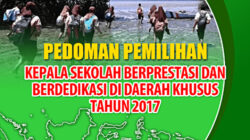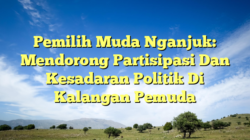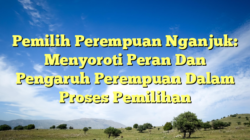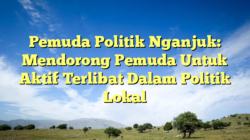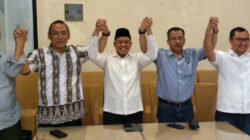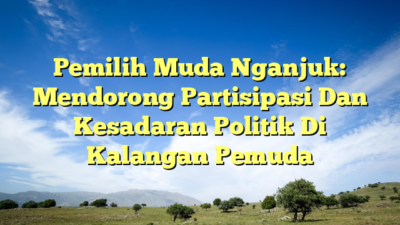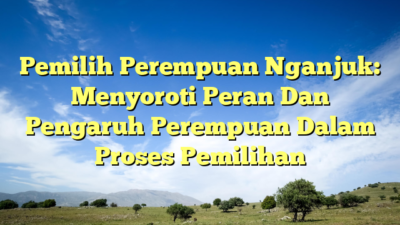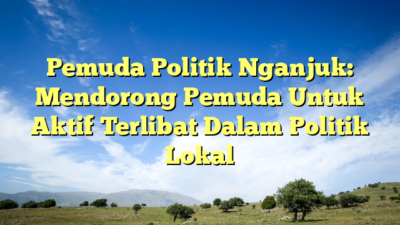The world of politics is always full of ups and downs, twists and turns. One party rises to power, another falls from grace, and the cycle of change and transformation never ends. With so much going on, it can be tough to keep track of the latest developments in political parties. That’s why we’re here to help you understand the dinamika or “dynamic” of political parties in Indonesia. Let’s dive in!
PDIP Dalam Pusaran Trauma Politik PKI – Tren Opini
When it comes to the political party scene in Indonesia, one name that comes up again and again is the PDIP or Indonesian Democratic Party of Struggle. Their recent involvement in the controversy surrounding the PKI, or Indonesian Communist Party, has sparked a lot of discussion and debate.
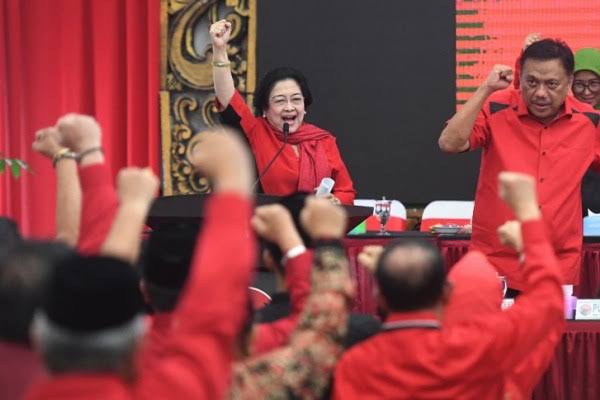
What is the Controversy?
Essentially, the controversy boils down to allegations that the PKI has infiltrated and manipulated the PDIP. The PKI was a contentious political force in Indonesia in the past, with many accusing them of fomenting dissent and trying to overthrow the government. After a failed coup in 1965, the PKI was banned and their members were hunted down and killed in a brutal crackdown.
Since then, the PKI has been a taboo topic in Indonesia, with people afraid to even mention their name for fear of being associated with the group. However, recent developments suggest that PKI supporters may be trying to resurface and gain influence through the PDIP.
Why is this Controversy Important?
Some people see this as a power struggle within the PDIP, with factions jockeying for control and influence. Others see it as a national security issue, with the fear that the PKI may be trying to make a comeback and destabilize the country.
The PDIP has denied any association with the PKI and has even expelled members who were accused of having ties to the group. However, the controversy persists and continues to generate heated debate.
Benefits of Understanding Political Party Dynamics
Understanding the dynamics of political parties can be crucial for anyone interested in politics or national affairs. It can help you stay informed on the latest developments, see the bigger picture of what’s happening in the country, and even make predictions about what might happen in the future.
Ideas for Further Research
If you’re interested in this topic, there are many avenues for further research. You could look into the history of the PKI and their activities in the past, explore the current political climate in Indonesia, or delve deeper into the internal workings of the PDIP.
How to Stay Informed
Keeping up-to-date with the latest news and opinions about political parties in Indonesia is easier than ever. With so many news outlets, social media platforms, and online forums available, there’s no shortage of information to be found.
Some popular sources for political news in Indonesia include Kompas, Tempo, and Detik. Social media platforms like Twitter and Facebook can also be great ways to stay connected with the latest developments and opinions.
Tips for Navigating Political Controversy
When it comes to politics, controversy is often par for the course. However, that doesn’t mean you have to get swept up in the emotional turmoil of it all.
Here are a few tips for navigating political controversy:
- Stick to trusted sources for information
- Stay open-minded and avoid jumping to conclusions
- Try to see different perspectives and understand where others are coming from
- Engage in respectful and constructive debate, rather than just trying to “win” an argument
Membaca Dinamika Partai dan Soliditas Koalisi Menuju 2024 – YouTube
The PDIP controversy is just one example of the complex and ever-changing political landscape in Indonesia. To get a broader understanding of the dinamika of political parties, it can be helpful to look at the bigger picture.

What is the Current Political Climate in Indonesia?
Indonesia is the world’s fourth-most populous country and has a diverse and vibrant political scene. The country has a multi-party system, with dozens of political parties vying for power and influence.
Some of the key players in the current political scene include:
- The ruling coalition, which is led by President Joko Widodo’s party, the PDIP
- The Gerindra party, which is led by former presidential hopeful Prabowo Subianto
- The Golkar party, a longtime political force with roots in the Suharto era
- The PKS party, which has ties to Islamic fundamentalism
Why is Solidarity Important in Politics?
Political solidarity is the idea that political parties or groups should work together to achieve common goals, rather than bickering and fighting with each other. It can be challenging to maintain solidarity in a diverse and fragmented political landscape like Indonesia’s, but it’s crucial for achieving meaningful change and progress.
Without solidarity, parties can become bogged down in internal squabbles and power struggles, or become ineffective in achieving their goals. Solidarity can help parties maintain focus, build alliances, and make strategic decisions.
Ideas for Building Political Solidarity
If you’re interested in building political solidarity, here are a few ideas to consider:
- Focus on shared goals rather than individual interests
- Communicate openly and honestly with other parties
- Find common ground and seek compromises
- Explore joint actions or initiatives
How to Stay Informed About Political Solidarity
Staying informed about political solidarity can be a bit trickier than staying up-to-date on the latest scandals or controversies. However, there are some strategies you can use.
One approach is to follow the news and opinions of political leaders and commentators who advocate for solidarity. You can also look for online forums and social media groups that focus on political issues and promote solidarity.
Tips for Getting Involved In Politics
Interested in getting involved in politics yourself? Here are a few tips to consider:
- Start small and local – run for community council, school board, or other entry-level positions
- Build relationships and networks with other activists and political players
- Be persistent and patient – change rarely happens overnight
- Have a clear vision and message, and be willing to listen to others’ ideas and concerns
Dinamika Tranformasi Partai Politik Indonesia : 1945 s/d…..
The history of political parties in Indonesia is a long and complex one. From the early days of independence to the present day, political parties have had a significant impact on the country’s development and transformation.
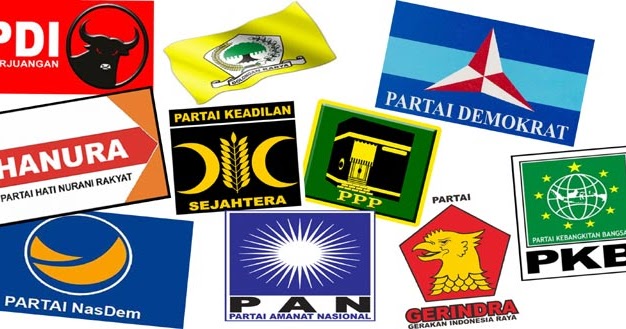
What is the History of Indonesian Political Parties?
Political parties in Indonesia can be traced back to the early 1900s, when nationalist groups began to organize into formal political bodies. The Indonesian National Party, or PNI, was one of the earliest and most influential parties, with figures like Sukarno and Sutan Sjahrir playing key roles in its development.
Over time, new parties emerged and old ones transformed or faded away. The country has seen dozens of political parties come and go, each with their own visions and agendas.
Why is Understanding Party Transformation Important?
Understanding the transformation of political parties over time can help us see how political ideas and movements evolve, and how they can shape a nation’s history and development. It can also help us understand the current political landscape and how it has come to be.
Benefits of Studying Political Party History
Studying political party history can have many benefits, including:
- Helping us understand the cultural and historical context of a nation
- Shedding light on current political trends and issues
- Offering insight into how political movements can transform ideas and aspirations into reality
- Providing a framework for understanding the evolution of political institutions and systems
Ideas for Further Research
If you’re interested in exploring the history of political parties in Indonesia further, there are many avenues for research. You could focus on the development of key parties like the PNI or the PKI, explore the role of women and minorities in party politics, or examine the impact of foreign powers and global trends on Indonesian political parties.
How to Stay Informed About Political Party History
Staying informed about political party history can be challenging, especially if you’re not familiar with the Indonesian language or cultural context. However, there are some resources available to help you out.
You can start by looking for academic articles or books on Indonesian political history, or seeking out political science courses or lectures. Online forums and discussion groups can also be a great way to connect with others who are interested in Indonesian politics and history.
Tips for Studying Political History
Studying political history can be rewarding but also challenging, especially if you’re new to the field. Here are a few tips to help you get started:
- Take your time and don’t rush – it’s a complex field with a lot of information to absorb
- Read widely and try to get multiple perspectives
- Consult with experts or people who are knowledgeable about the topic
- Practice critical thinking and analysis, and be willing to question your assumptions and beliefs
Ijtihad Politik; Poros Tengah dan Dinamika Partai Amanat Nasional oleh Muhammad Najib di lapak
Another political party that has been making waves in Indonesia is the Amanat Nasional party, or PAN. Led by media mogul Surya Paloh, PAN has positioned itself as a moderate, centrist alternative to the more polarizing and extreme parties on both sides of the political spectrum.

What is the “Poros Tengah”?
The “poros tengah” or “central axis” is a political concept that advocates for a middle ground or centrist approach to politics. It seeks to bridge the gap between the extremes of left and right, and offer a more balanced and pragmatic approach to governance.
While the “poros tengah” has been around for a while, it has gained renewed attention in recent years, thanks in part to the rise of parties like PAN.
Why is a Centrist Approach Important?
Many people argue that a centrist approach is vital for maintaining stability and progress in any society. By avoiding the extremes of left or right, a centrist party can better accommodate diverse viewpoints and interests, promote compromise and consensus, and avoid the dangers of radicalism or extremism.
Benefits of a Centrist Political Party
A centrist political party can have many benefits, including:
- Fostering cooperation and collaboration across ideological divides
- Closer alignment with the majority of a nation’s voters
- Offering a more nuanced, thoughtful approach to policy making
- Promoting stability and moderation in a volatile political climate
Ideas for Building a Centrist Approach
If you’re interested in building a centrist approach in politics, here are a few ideas to consider:
- Focus on finding common ground and building bridges between different groups
- Emphasize the importance of facts, evidence, and rational thinking in policy making
- Advocate for collaboration and compromise rather than confrontation and polarizing rhetoric
- Encourage openness and engagement with people of different backgrounds and viewpoints
How to Stay Informed About Centrist Politics
Staying informed about centrist politics can be challenging, especially if you’re used to more extreme or polarizing viewpoints. However, there are resources available to help you understand the concept more deeply.
You can start by reading up on the history and theory of centrist politics, or seeking out experts and commentators who advocate for a centrist approach. Various media outlets also cater to centrist audiences such as the Jakarta Post and Jakarta Globe
Tips for Supporting Centrist Politics
Interested in getting involved in centrist politics? Here are a few tips to consider:
- Stick to your principles and beliefs, but be open to compromise and negotiation
- Be willing to collaborate and work with people of diverse backgrounds and viewpoints
- Focus on finding common ground and building mutual respect and understanding
- Communicate clearly and effectively, and be willing to listen to others’ perspectives and feedback
Overall, understanding the dinamika or “dynamic” of political parties in Indonesia is an essential part of being an informed citizen and engaged political actor. By staying up-to-date on the latest trends and developments, exploring complex political concepts like the “poros tengah,” and keeping an open mind and constructive attitude, we can pave the way for a more vibrant, stable, and productive political landscape.

